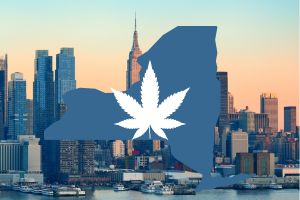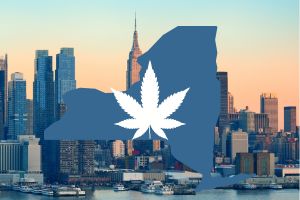Is Hemp Legal in New York?
Posted by Tweedle Farms on Jul 2nd 2020

In the ever-evolving landscape of cannabis law in the United States, New York State has emerged as a pivotal player. The passage of progressive legislation has positioned the state as a beacon for reform, catalyzing change and setting benchmarks for the industry. This article delves into the nuanced legal framework governing the hemp industry in New York, with a particular focus on hemp flower (aka CBD flower) and THCA flower, shedding light on the intricacies and opportunities within this green frontier.
Hemp, often overshadowed by its psychoactive cousin marijuana, is a variety of Cannabis sativa that is grown for its industrial, medicinal, and recreational uses. Its fibers are heralded for their strength and versatility, finding applications in textiles, construction, and even biofuel. However, it is hemp flower that has gained the most attention in recent years, as it is rich in cannabinoids like CBD (Cannabidiol) and low in THC (Tetrahydrocannabinol), the compound responsible for marijuana's psychoactive effects. This distinction is crucial, as it underpins the legal differentiation between CBD flower and what is colloquially-known as marijuana, setting the stage for the legal status of hemp flower in New York.
New York's journey toward the legalization of hemp flower, and hemp as a whole, has been marked by strategic legislation and regulatory oversight, aimed at fostering growth while ensuring public safety. The state's hemp flower cultivation program, established in response to the 2014 Farm Bill, allowed for controlled growing, only for research purposes. However, the 2018 Farm Bill was a watershed moment, redefining hemp flower with less than 0.3% THC on a dry weight basis as an agricultural commodity, thereby removing it from the Controlled Substances Act. New York State was quick to align with this federal mandate, enacting laws that not only legalized the cultivation of CBD flower, but also set the groundwork for a regulated hemp industry, including the production and sale of hemp-derived products like CBD oil, as well as hemp flower itself
In New York, hemp flower refers to the dried bud of the hemp plant, which is rich in cannabinoids and terpenes, offering a non-intoxicating alternative to traditional cannabis products. The legal status of hemp flower hinges on its THC content; as long as it contains less than 0.3% THC, it's legal. However, the state mandates strict labeling and testing requirements to ensure compliance, safeguarding consumers from misleading products and potential legal pitfalls.
When it comes to THCA flower, on the other hand, the waters get a bit murkier. As a result of the somewhat recent legalization of recreational cannabis in the state of New York, THCA flower (which is simply a misnomer for high-THC cannabis) is just as legal as any other form of cannabis. It is not legal, however, to ship this THCA across state lines (THC is still a federally scheduled substance, after all), so if you’re purchasing THCA flower, make sure to do so in state.
Navigating the legal landscape of CBD flower and CBD products in New York requires diligence and adherence to state regulations. The New York State Department of Agriculture and Markets oversees the cultivation of hemp flower, while the Office of Cannabis Management is tasked with regulating processed hemp products, including those containing CBD. Compliance with these regulations is paramount for businesses to thrive, emphasizing the need for rigorous testing, accurate labeling, and transparent consumer education.
The legalization of hemp flower in New York has ushered in a new era of economic opportunity, with the state positioning itself as a leader in the burgeoning industries of hemp and CBD flower. From farmers diversifying their crops with hemp flower to entrepreneurs innovating in the realms of CBD and hemp-based products, the market is ripe with potential. However, the industry's growth is not without its challenges, including regulatory hurdles, market saturation, and the ongoing need for public education and awareness.
With the proliferation of CBD flower in the market, consumer safety and education have become paramount. New York State has taken proactive steps to ensure that consumers are well-informed about the products they purchase, mandating clear labeling and providing resources to understand the nuances of hemp-derived products. This emphasis on education seeks to demystify hemp, empowering consumers to make informed decisions.
As we look to the future, the industry based on New York-grown CBD flower stands at a crossroads of opportunity and regulation. Continued research and innovation in hemp flower cultivation and product development, coupled with a dynamic regulatory framework, will shape the trajectory of the industry. Advocacy and community engagement will play a crucial role in navigating the complexities of legislation, ensuring that the green rush of hemp in New York flourishes in a sustainable and equitable manner.
The legalization of CBD hemp flower in New York represents a significant milestone in the broader narrative of cannabis reform in the United States. By understanding the legal nuances of hemp flower, CBD flower, and THCA flower, stakeholders can navigate the industry with confidence, contributing to a vibrant and responsible hemp ecosystem. As New York continues to chart its course in this green revolution, the promise of hemp remains boundless, offering a beacon of growth, innovation, and sustainability in the Empire State.



